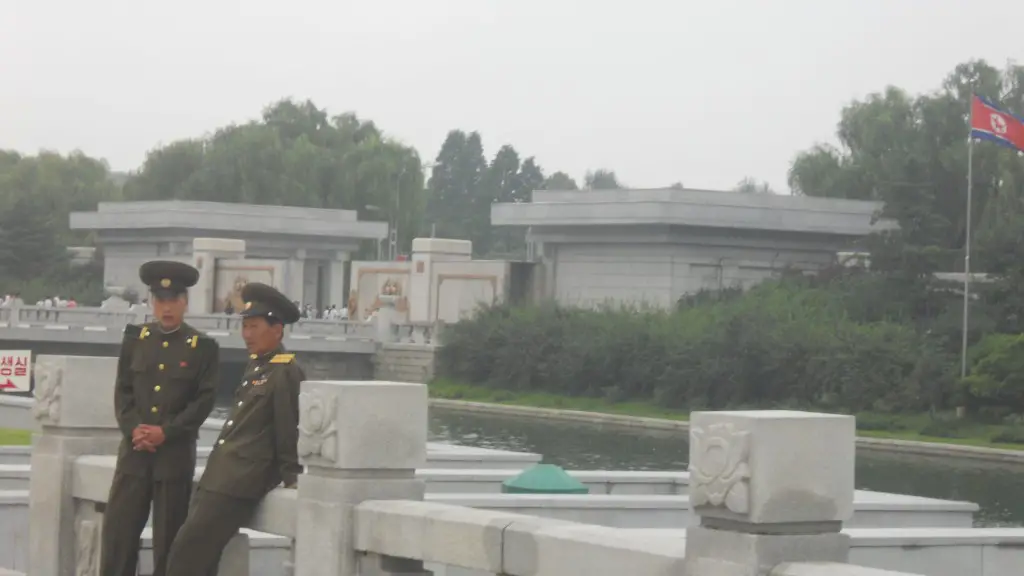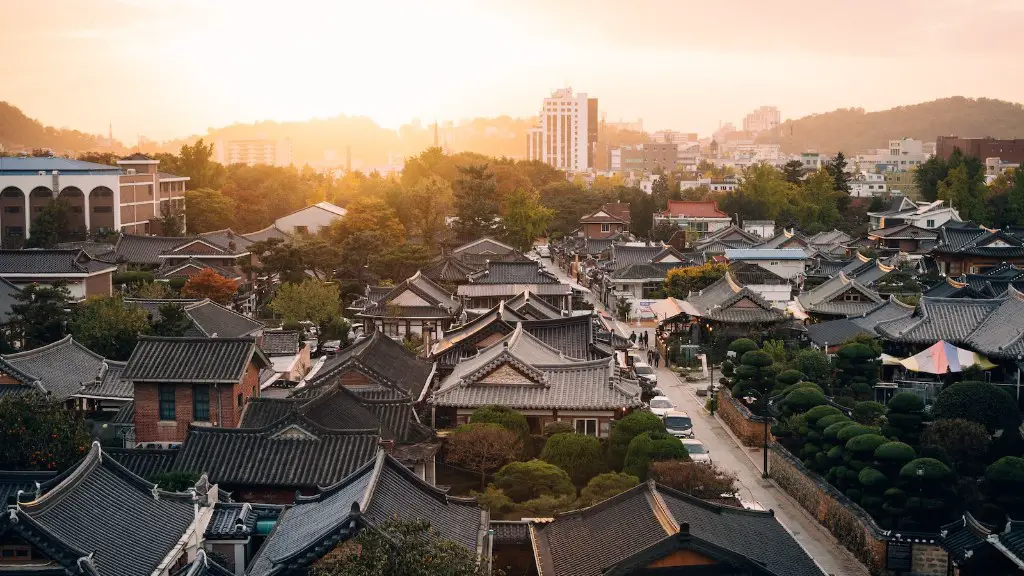Background Into North Korea
North Korea is an isolated nation on the eastern side of the Korean peninsula. It is a communist state and has been ruled by dictator Kim Jong-un since 2011. North Korea has stirred up controversy with its nuclear missile development program, which began in the early 1990s. Despite international condemnation and multiple sanctions, North Korea has continued to test nuclear weapons and missile technology.
Purpose of North Korea’s Nuclear Tests
North Korea has carried out several nuclear tests since its first test in 2006. Its latest reported test was in 2017, when the rogue state claimed to have successfully tested a hydrogen bomb. The purpose of these tests is twofold. Firstly, they give North Korea greater leverage and diplomatic strength by demonstrating its ability to build nuclear weapons and missiles. This allows it to intimidate other nations, making it difficult for them to take action against North Korea. Secondly, the tests enable North Korea to increase its military capabilities and develop more advanced nuclear technology.
Impact of North Korea’s Nuclear Tests
North Korea’s nuclear tests have had a devastating impact on the region. They have stoked tensions in East Asia and beyond, and have prompted other countries to increase their own military capabilities and develop their own nuclear weapons as a deterrent. This has had adverse effects on global stability and security.
North Korea’s nuclear tests have also had devastating economic effects, particularly on countries in the region. Sanctions imposed by the United Nations in response to these tests have devastated North Korea’s economy, and have had a knock-on effect on neighbouring countries, resulting in reduced foreign investment and trade.
Reaction of the International Community
The international community, particularly the United States and its allies, have been highly critical of North Korea’s nuclear tests. The United Nations has imposed strict sanctions on the North Korean regime in order to compel it to stop testing and to dismantle its nuclear weapons and missiles. However, North Korea has responded to the sanctions with defiance and has continued its testing program.
Despite its repeated violation of international law, North Korea continues to enjoy diplomatic support from countries such as China and Russia. These countries have been critical of the sanctions and have consistently sought to protect their ally from harsh punishment.
Potential Solutions
The international community has yet to find a lasting solution to the North Korean nuclear crisis. Some believe that diplomatic negotiations and economic incentives may be the only way to persuade the North Korean regime to give up its nuclear weapons and missiles. Others argue that total economic sanctions are the only way to bring North Korea to the negotiating table.
Another potential solution is for the international community to work together to contain North Korea and its nuclear activities. This could involve placing tighter restrictions on its nuclear capabilities, enforcing international law, and providing greater security guarantees to its neighbours. Ultimately, however, it will be up to North Korea to make the decision to disarm.
US Involvement
The United States has been at the forefront of the effort to convince North Korea to give up its nuclear weapons and missiles. The Trump administration has sought to increase pressure on North Korea by imposing tough economic sanctions and deploying US forces in the region. It has also sought to engage in direct talks with the North Korean regime.
The Trump administration’s strategy has been largely unsuccessful, with North Korea continuing to ignore US demands and refusing to enter into negotiations. This has led some to question whether the US’s hard-line stance is the most effective approach to the crisis.
Negotiation With North Korea
In the face of US pressure, North Korea continues to stand firm on its nuclear program. However, some believe the North Korean regime is willing to negotiate if it is offered sufficient incentives. Diplomats have suggested offering economic and security guarantees to North Korea in return for its denuclearization.
The international community has a responsibility to seek a peaceful resolution to the North Korean nuclear crisis. In particular, the US and its allies must demonstrate a willingness to negotiate and a commitment to diplomacy. This is the only way to prevent the region from sliding further into chaos.
North Korea’s Motivations
Ultimately, North Korea is motivated by its own security and economic interests. Its nuclear program is largely motivated by its need to protect itself from perceived external threats and to enhance its bargaining power in negotiations with other countries.
North Korea is also driven by economic concerns. Its nuclear program is an attempt to raise its standing in the international community so that it can gain easier access to investments and aid.
Involvement of Regional Powers
The North Korean nuclear crisis cannot be solved without the involvement of regional powers such as China and Japan. Both countries can play a crucial role in helping to bring North Korea to the negotiating table and in ensuring that any potential solution is implemented in a peaceful and just manner.
China is in a unique position as North Korea’s closest ally. It can use its influence to pressure North Korea to abandon its nuclear program and join the international community as a responsible member. Similarly, Japan has a vested interest in resolving the crisis and has sought to engage in dialogue with North Korea.
Conclusion
North Korea’s nuclear tests have threatened regional security and stability. The international community, spearheaded by the United States, has sought to contain North Korea and bring it to the negotiating table. The only way to resolve the crisis is through diplomacy, economic incentives, and containment strategies. Regional powers such as China and Japan also have an important role to play in bringing about a peaceful resolution.


